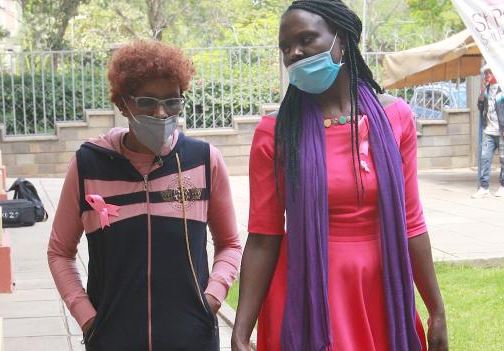×
The Standard e-Paper
Home To Bold Columnists

Corletta Mwende discovered she had a lump in her left breast in November 2019, and in January doctors confirmed it was Stage Two cancer. However, her plans to go to India for treatment were halted after all international flights were suspended due to the Covid-19 pandemic.
“Since I was unable to go to India, my doctor gave me some medicine to manage the pain. However, after three months the lump had increased in size from 1.8cm to 2.7cm and also moved to my right breast,” says Mwende.